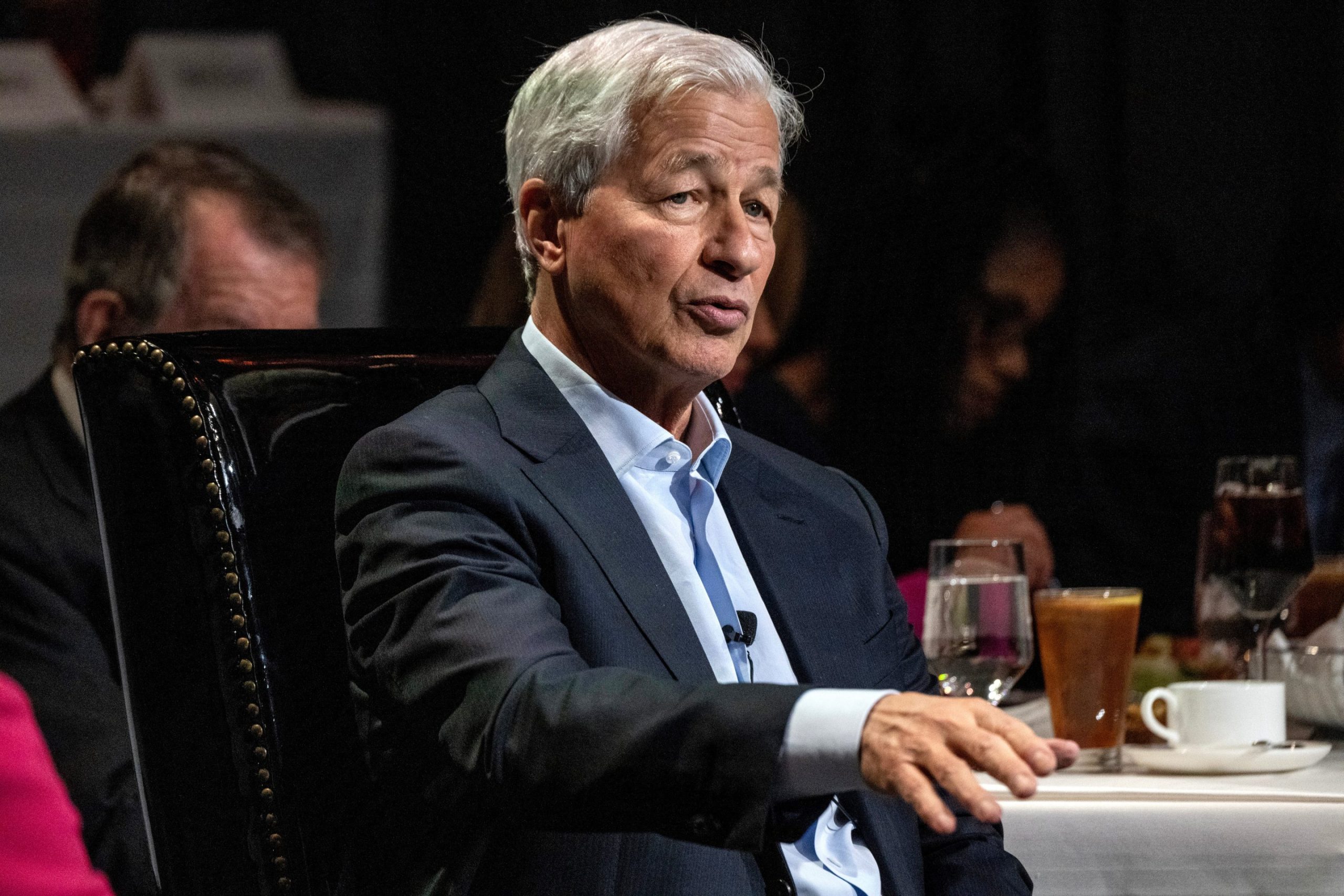IN BRIEF
- Jamie Dimon characterized the U.S. economy as thriving but conveyed reservations about its long-term viability.
- The International Monetary Fund (IMF) anticipates U.S. growth to outpace that of other G7 nations in 2024, fueled by robust household expenditures and investments.
- Despite optimistic projections, Dimon maintains a skeptical outlook on achieving a smooth economic transition without adverse consequences.
In his remarks, Dimon acknowledged the undeniable strength of the U.S. economy, emphasizing its impressive performance over a sustained period. The economy’s robustness, characterized by significant growth and prosperity, has undoubtedly been a cause for celebration among policymakers, businesses, and the public alike. However, amid this optimism, Dimon’s apprehension about the future casts a shadow over the prevailing narrative of success.
Dimon’s caution stems from his belief that sustaining the current economic momentum may prove challenging, particularly as policymakers navigate the complexities of monetary policy and economic management. While the International Monetary Fund (IMF) forecasts U.S. growth to outpace that of other G7 nations in the coming year, driven by strong consumer spending and investment, Dimon remains wary of potential pitfalls along the way.
One of Dimon’s primary concerns is the prospect of achieving a “soft landing” for the economy—a gradual slowdown that avoids sharp declines in economic activity or financial instability. While such a scenario is desirable for maintaining stability and avoiding disruptions, Dimon believes it may be challenging to orchestrate in practice.
Dimon’s skepticism about a smooth economic transition underscores the uncertainties and risks inherent in managing a complex economy. Economic cycles are inherently unpredictable, influenced by a myriad of factors ranging from global economic conditions to domestic policy decisions. As such, Dimon’s cautious stance serves as a reminder of the need for prudent decision-making and vigilant risk management in navigating the economic landscape.
Economic Expansion and Forecasts for the United States
Jamie Dimon, the CEO of JPMorgan Chase, offered insights into the current economic landscape, highlighting the robust performance of the United States compared to other major economies. The International Monetary Fund (IMF) projects that the U.S. will experience growth twice as rapid as any other G7 nation this year. This growth trajectory is primarily attributed to the resilience of household spending and investment, which has defied previous concerns about the potential recessionary effects of rapid interest rate hikes by the Federal Reserve.
Contrary to fears of an economic downturn, the IMF forecasts a growth rate of 2.7% for the U.S. economy this year, followed by a slightly moderated rate of 1.9% next year. This positive outlook is underscored by the substantial 3.4% annual growth rate recorded in the final quarter of 2023. Dimon cautiously characterized the current economic state as indicative of a “soft landing scenario,” although he tempered his optimism with a prudent acknowledgment, stating, “But put me on the cautious side of that one.”
Dimon reminisced about a maxim from his early days on Wall Street, suggesting that market conditions often lead to unexpected outcomes that can adversely affect the majority of participants. This sentiment underscores his cautious approach to the seemingly positive economic indicators.
Despite geopolitical tensions, particularly in regions crucial to global oil production, such as the Middle East, Dimon expressed surprise at the resilience of oil prices, which have remained relatively stable around $88 per barrel. However, he issued a warning, noting that it would not require significant escalation for oil and gas prices to surge to $120 or higher. Such an increase could pose significant risks to energy infrastructure and potentially disrupt the broader economy. Dimon’s remarks serve as a reminder of the dynamic nature of global markets and the potential for unforeseen developments to impact economic stability.
Dimon Reflects on Leadership and Global Impact
In the interview, Dimon delved into reflections on leadership and service, touching upon various facets of global influence and political dynamics. Despite some calls for him to enter the presidential race, Dimon humorously downplayed the idea, emphasizing the need for a different path to leadership than traditional elections.
He advocated for greater participation of business leaders in government affairs, proposing a bipartisan approach where members of opposing parties collaborate within cabinets. Dimon’s admiration for Indian Prime Minister Narendra Modi’s accomplishments, particularly in poverty reduction, underscored his recognition of effective leadership on a global scale.
Dimon also discussed the ongoing resilience of the U.S. economy, which has defied expectations of slowdown despite Federal Reserve rate hikes. This resilience can be attributed to significant fiscal stimulus measures, totaling approximately $10 trillion, implemented under both Trump and Biden administrations since the 2020 recession.
However, the substantial fiscal stimulus has resulted in a growing deficit, reaching 40% of GDP, double the European average. While this injection fueled economic growth, it also contributed to an overheated economy, characterized by elevated consumer and asset prices.
Furthermore, the Federal Reserve’s monetary policies during the pandemic created a liquidity surplus, influencing financial markets and asset prices, with the money supply remaining well above pre-pandemic levels. Yet, this growth has raised concerns about an impending economic downturn, especially considering the limited room for maneuvering left for the Fed.
In conclusion, while the U.S. economy has exhibited resilience in the face of challenges, the ongoing high interest rates and substantial deficits pose risks that may lead to a more abrupt economic downturn once the stimulus effects diminish.
READ MORE ABOUT: JP Morgan Reveals Why Ethereum Might Not Qualify as a Security



